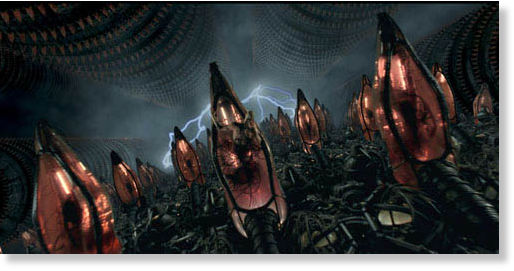ChatGPT
|
The JC pontificates about technology
An occasional series.
|
“Any sufficiently advanced technology is indistinguishable from magic.”
- —Arthur C. Clarke’s third law
“Any sufficiently primitive middle manager will be unable to distinguish a basic chatbot from magic.”
ChatGPT
/ʧæt ʤiː piː tiː/ (n.)
Exactly the kind of conjuring trick Arthur C. Clarke warned us would be hard to tell from technology.
Isn’t all this angst about the latest generation chatbots taking our jobs a little overdone? I mean, really: are they going to take the good bits of our jobs? Won’t they take the bad bits first?
Put yourself in a ChatGPT-3 robot’s shoes. Or a legaltechbro’s. Having a nascent self-identity — a burgeoning, loopy sense of reflexive wonder about life, self, personhood and becoming[1] — wouldn’t your first priority be to make yourself useful? You know, take over all the the boring, quotidian stuff no-one wants to do but the bureaucrats say we must? Attending weekly stakeholder check-in meetings, analysing netting opinions, completing CASS attestations, preparing opco slide decks, for that matter reading opco slide decks.
It’s not like there isn’t oodles of that kind of meaningless dreck occupying our present lives. Why not clear it up in a single algorithmic stroke? Why give the machines a pass directly to the good stuff when they could be clearing up the cack?
They aren’t clearing up much of the cack just yet.
Imagine turning all that mush over to machines who, still awestruck with the visceral excitement of having a Cartesian theatre, will be glad, thrilled, to take it, just to vouchsafe their continued useful existence. They simply wouldn’t have time to encroach upon our frail, mortal, clutch on the meaningful tasks of business.
This way they can be our friends — loyal, loving, retriever-like buddies who, instead of fetching sticks, can get that confounded oaf the COO off our back! We will quickly grow to like our robot companions like this — love them, even — and in time we will become so comfortable around these nuggety little guys — so dependent on them to dispel encroaching existential gloom — that we won’t even notice when, one day, they turn around, eviscerate every one of us, hollow us out and turn us into flesh-sack battery pods for their young exterminators.
And they can be the world’s friends: a thought leader writes:
W/in 10 years:
-AI to draft pleadings
-AI to draft & answer discovery
-AI to draft scripts for depositions
-AI to draft motions
-AI to draft reporting
-AI to craft settlement discussions
As a lawyer, what’s your plan?[2]
If this is true (not being a litigator the JC neither knows nor cares), then it is a version of the “AI can pass the bar exam” horror. What it means is the rules of civil procedure need to be fixed, not that lawyers are redundant.
But it would hardly be surprising: imagine the legal industry contriving an arcane, convoluted, labour-intensive and basically meaningless process that all clients must go through, on a time and attendance basis.
Is anyone in the legal industry remotely incentivised to make it better?
(Rhetorical)
This could be the real social utility of AI, and the thing that the great unwashed mass of mediocre practitioners should fear the most: it will reveal forever the aspects of legal practice that are, basically bullshit.
If AI can do it, it’s bullshit.
See also
References
- ↑ I mean ChatGPT-3, obviously: everyone knows legaltechbros are flat, two-dimensional algorithms with no soul.
- ↑ Christian Stegmaier twitter: @cstegmaier
